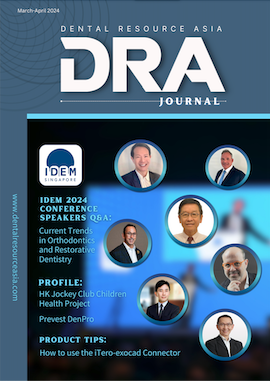A recent dental study delves into the fascinating realm of root canal-treated (RCT) teeth and their interaction with dental implants.
The primary objective of this retrospective case-control study was to assess the survival of RCT teeth situated adjacent to dental implants and compare it with RCT teeth within the same patient that are not adjacent to implants.
Methodology and Patient Cohort
For this comprehensive analysis, the study carefully selected RCT teeth that were adjacent to dental implants, forming the test group. In contrast, the control group comprised RCT teeth from the same patients, but these teeth were not adjacent to dental implants and were of the same type as the RCT teeth in the test group. A total of 72 teeth from 36 patients, each with a minimum 4-year follow-up, were included in the study.
 Click to Visit website of India's Leading Manufacturer of World Class Dental Materials, Exported to 90+ Countries.
Click to Visit website of India's Leading Manufacturer of World Class Dental Materials, Exported to 90+ Countries.
The research also examined various clinical and demographic parameters, including factors such as age, gender, tooth type and position, the presence of crowns, retreatment, post-core presence, adjacent edentulous areas, the existence of implant-supported fixed prosthetic restorations on antagonist teeth, and periapical health status.
Key Findings: No Detrimental Impact of Implants on RCT Teeth
The study’s findings offer a reassuring insight for patients and dental professionals alike. It revealed that there was no significant difference in survival rates between RCT teeth adjacent to dental implants and those that were not (p=0.72). Moreover, no substantial correlation was established between the clinical variables examined and the survival rates of RCT teeth (p>0.05).
However, the study did uncover specific factors that affected survival times. Notably, the presence of an adjacent edentulous area had a significant impact on survival times (p<0.001), as did the periapical health status (p=0.026). Teeth with unhealed periapical tissues exhibited shorter cumulative survival times, while those adjacent to edentulous areas demonstrated reduced cumulative and complication-free survival times.
Significance of the Study
This study holds significant clinical relevance, as it marks the first time that the survival outcomes of RCT teeth adjacent to dental implants were systematically compared with non-adjacent RCT teeth within the same patient. The results show that being adjacent to a dental implant does not adversely affect the survival time or rate of RCT teeth.
In essence, this research provides valuable insights for dental practitioners and their patients, reassuring that RCT teeth can coexist successfully with dental implants, offering a promising outlook for dental treatments.
The information and viewpoints presented in the above news piece or article do not necessarily reflect the official stance or policy of Dental Resource Asia or the DRA Journal. While we strive to ensure the accuracy of our content, Dental Resource Asia (DRA) or DRA Journal cannot guarantee the constant correctness, comprehensiveness, or timeliness of all the information contained within this website or journal.
Please be aware that all product details, product specifications, and data on this website or journal may be modified without prior notice in order to enhance reliability, functionality, design, or for other reasons.
The content contributed by our bloggers or authors represents their personal opinions and is not intended to defame or discredit any religion, ethnic group, club, organisation, company, individual, or any entity or individual.


